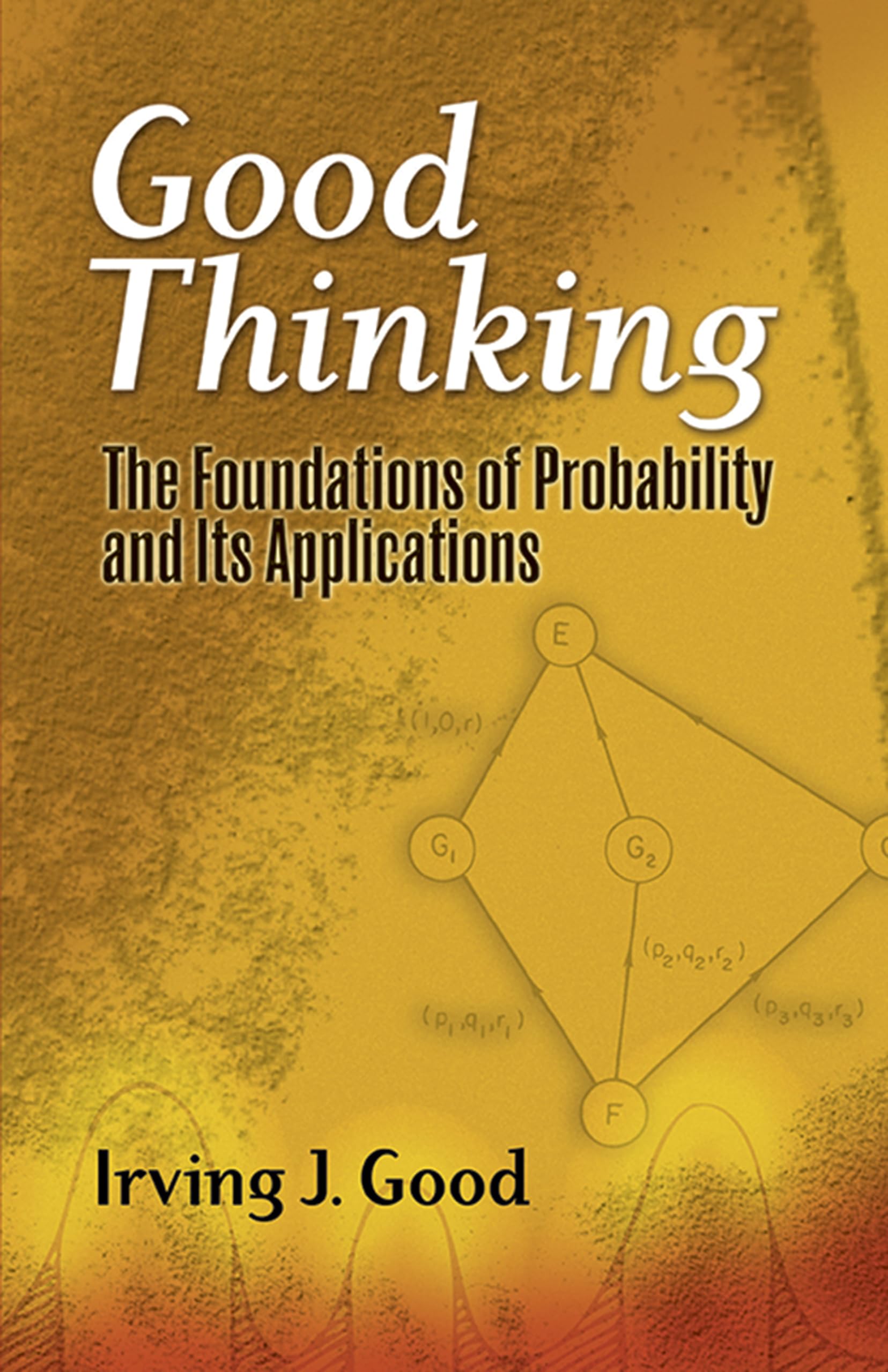Picture 1 of 1

Stock photo

Picture 1 of 1

Stock photo

Dover Books on Mathematics Ser.: Good Thinking : The Foundations of Probability and Its Applications by Irving John Good (2009, Trade Paperback)

baystatebooks (60514)
99.4% positive feedback
Price:
US $11.06
ApproximatelyRM 46.55
+ $17.97 shipping
Returns:
30 days return. Buyer pays for return shipping. If you use an eBay shipping label, it will be deducted from your refund amount.
Condition:
Oops! Looks like we're having trouble connecting to our server.
Refresh your browser window to try again.
About this product
Product Identifiers
PublisherDover Publications, Incorporated
ISBN-100486474380
ISBN-139780486474380
eBay Product ID (ePID)102863523
Product Key Features
Number of Pages352 Pages
LanguageEnglish
Publication NameGood Thinking : the Foundations of Probability and Its Applications
Publication Year2009
SubjectProbability & Statistics / General
TypeTextbook
AuthorIrving John Good
Subject AreaMathematics
SeriesDover Books on Mathematics Ser.
FormatTrade Paperback
Dimensions
Item Height0.9 in
Item Weight14.4 Oz
Item Length8.4 in
Item Width5.3 in
Additional Product Features
Intended AudienceCollege Audience
LCCN2009-024055
Dewey Edition22
IllustratedYes
Dewey Decimal519.2
Table Of ContentAcknowledgments Introduction Part I. Bayesian Rationality 1. Rational Decisions 2. Twenty-seven Principles of Rationality 3. 46656 Varieties of Bayesians 4. The Bayesian Influence, or How to Sweep Subjectivism under the Carpet Part II. Probability 5. Which Comes First, Probability or Statistics 6. Kinds of Probability 7. Sublective Probability as the Measure of a Non-measurable Set 8. Random Thoughts about Randomness 9. Some History of the Hierarchical Bayesian Methodology 10. Dynamic Probability, Computer Chess, and the Measurement of Knowledge Part III . Corroboration, Hypothesis Testing, Induction, and Simplicity 11. The White Shoe is a Red Herring 12. The White Shoe qua Herring is Pink 13. A Sublective Evaluation of Bode's Law and an "Objective" Test for Approximate Numerical Rationality 14.Some Logic and History of Hypothesis Testing 15. Explicativity, Corroboration, and the Relative Odds of Hypothesis Part IV Information and Surprise 16. The Appropriate Mathematical Tools for Describing and Measuring Uncertainty 17. On the Principle of Total Evidence 18.A Little Learning Can Be Dangerous 19. The Probabilistic Explication of Information, Evidence, Surprise, Causality, Explanation, and Utility 20. Is the Size of Our Galaxy Surprising? Part V. Causality and Explanation 21. A Causal Calculus 22. A Simplification in the "Causal Calculus" 23. Explicativity: A Mathematical Theory of Explanations with Statistical Applications References Bibliography Sublect Index of the Bibliography Name Index Sublect Index
SynopsisThis in-depth treatment of probability theory by a famous British statistician explores Keynesian principles and surveys such topics as Bayesian rationality, corroboration, hypothesis testing, and mathematical tools for induction and simplicity. Additional subjects include causality and explanation, causal calculus, and an extensive contrast of probability and statistics. 1983 edition., This in-depth treatment of probability theory by a famous British statistician explores Keynesian principles and surveys such topics as Bayesian rationality, corroboration, hypothesis testing, and mathematical tools for induction and simplicity. 1983 edition., These sparkling essays by a gifted thinker offer philosophical views on the roots of statistical interference. A pioneer in the early development of computing, Irving J. Good made fundamental contributions to the theory of Bayesian inference and was a key member of the team that broke the German Enigma code during World War II. Good maintains that a grasp of probability is essential to answering both practical and philosophical questions. This compilation of his most accessible works concentrates on philosophical rather than mathematical subjects, ranging from rational decisions, randomness, and the nature of probability to operational research, artificial intelligence, cognitive psychology, and chess. These twenty-three self-contained articles represent the author's work in a variety of fields but are unified by a consistently rational approach. Five closely related sections explore Bayesian rationality; probability; corroboration, hypothesis testing, and simplicity; information and surprise; and causality and explanation. A comprehensive index, abundant references, and a bibliography refer readers to classic and modern literature. Good's thought-provoking observations and memorable examples provide scientists, mathematicians, and historians of science with a coherent view of probability and its applications.
LC Classification NumberQA273.4.G66 2009
Be the first to write a review





